5 min read
What’s the difference between electric radiators and panel heaters?
In this blog we run through the difference between electric radiators and panel heaters. If you are thinking about giving your home heating a bit of...
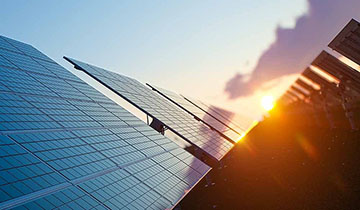
The energy crisis and extreme price volatility in fossil fuel markets has had a dramatic impact on the cost of living for many homeowners, and as a result, they are seeking new ways to reduce energy costs. Should the construction industry be taking note and pivoting to increase the availability of low carbon heating solutions as a way of reducing costs?
In our latest research ‘Working towards Net Zero’, respondents from across the construction industry, acknowledge that homeowners continue to be influenced by old ways of thinking about heating. For example, 71% agreed that people's experiences with old-fashioned storage heating and immersion heaters still influence the way that they perceive modern electric heating. And 79% felt that the higher running costs put a lot of consumers off installing direct electric heating.
We know that electric heating is not for everyone, so this heating blog walks through the common disadvantages to help provide some much-needed clarity on the suitability of electric heating for your home or project.
When we are discussing electric heating, we are referring to any system that uses electricity as a type of main energy source to heat a home. These types of electric heating systems would include, electric boilers, underfloor heating, radiators and more.
You’ll find that electric heating is more common in blocks of flats, rented accommodation, garden rooms and where homes are not connected to mains gas (over 2 million homes).
Electricity is increasingly becoming a low carbon form of heating, especially as more renewable sources like wind and solar power are connected to the electricity grid. However, electricity still isn’t totally free of carbon emissions. More about that further down this blog.
When it comes to the cost per kilowatt hour (kWh), there’s no denying that the cost per kWh of electricity is three to four times more expensive than gas. From the 1st of October 2022, the actual cost of electricity per kWh had risen to 52p per kWh, but with the new Energy Price Guarantee, it reduced to 34p per kWh. Even with the cost of gas per kWh increasing by over 100% from 7.4p to 15p, electricity simply can’t compete.
However, there is a BIG but…
Electric heating is 100% efficient at point of use. Let’s take the example of electric underfloor heating versus a wet underfloor heating system. The real difference between both underfloor heating systems is how the joule of energy is transported to the point of the system that generates heat. With a wet underfloor heating system, a boiler would be typically used to heat the water, which is transported through a network of pipes to heat the room. Between 20-40% of the energy is lost as a result.
With electric underfloor heating, there’s no need to transport the energy as each joule is generated exactly where the heat is needed. This means for every pound spent on running the heating system, it is being converted to heat, right where it is needed.
There’s also installation and maintenance costs of electric heating to consider. Electric heating systems don’t require an annual service and are, on average, cheaper to install compared to alternative heating systems unless you plan to install a heat pump which can cost you a pretty penny.
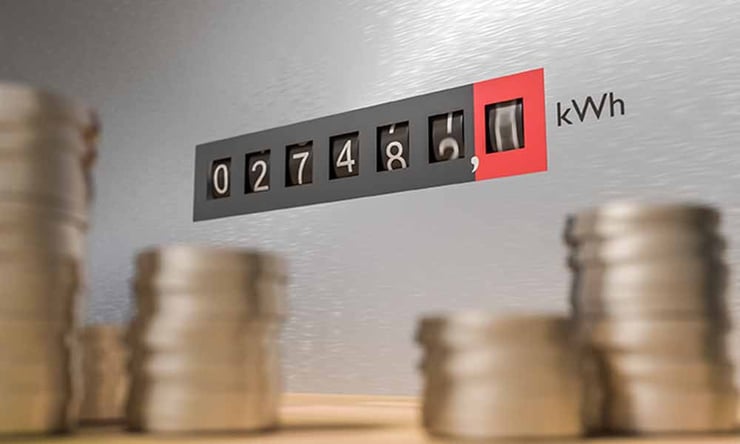
Electric heating doesn’t produce harmful carbon emissions at point of use which is why it is often referred to as a clean way to heating homes. But this does not take into consideration how the electricity is generated and fed into the grid.
Heating a home should include how the electricity is generated too. According to EDF’s fuel mix the fuel that was used to generate electricity between April 2021 to March 2022 in the UK (average fuel mix) was:
Depending on where you live, and the electricity supplier that you are with, the electricity you use in your home is generated from different sources. Unfortunately, if you are not on a green energy tariff, you won’t be able to guarantee that you're using renewable energy when you switch on your electric heating because electricity from all sources is mixed-up in the grid.

Power cuts effect both traditional gas central heating and electric heating systems such as electric radiators. The difference is that if you need to set up the heating schedule again, you only need to do it from one central point for traditional central heating. However, if you have multiple electric radiators, it can be a bit of a pain to go around to each one and set up the heating schedule again (if you have multiple installed). But there have been significant improvements to electric heating technology. For example, many smarter models of electric radiators include a backup, so even if there is a power cut, the heating schedule will remain.
If you are thinking about replacing your gas central heating with electric, we would always recommend seeking advice from a qualified electrician. Let’s take the example of electric radiators again. To reduce overloading, the electrician may need to wire your electric radiators into fuse spurs, especially if you are planning to use multiple electric radiators.
Single phase and three phase
If you are thinking of installing something like a heat pump or solar PV, you may need three phase electricity because you need to be sure that the electrical supply can cope with the demand. This is where the potential electrical load is spread across three phases by balancing appliances against each other to ensure there aren’t too many connected to any one phase. Whereas single-phase electricity provides enough power to run all lighting, appliances, heating and gadgets, which is ideal for most modern homes.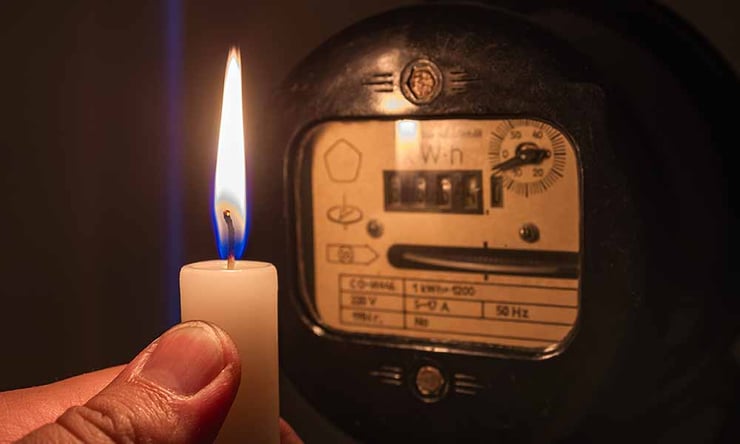
Electric heating is one of the safest ways to heat a home. Where concern lies is with the increase in use of portable electric heaters to warm a room. In a recent article ‘Cost of living: Electric heaters may pose fire risks despite savings’ on the BBC News website, Electrical Safety First highlighted the dangers of using portable electric heaters without care. Tips included:
If these types of electric heaters, especially fan heaters, are not used with care, they can cause significant fires.
Electric heating is not for everyone and depending on what type of electric heating system you are looking to install, you will have to consider the disadvantages. A well-insulated home along with fully utilising smart control of your system will help to manage your electricity use but the cost per kWh of electricity is not going down any time soon.
If you have any questions about electric heating, please contact our team, who are always on hand with helpful advice that can save you both time and money.
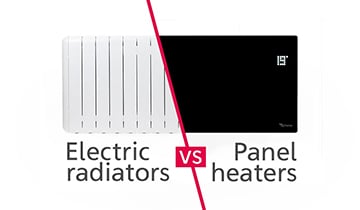
5 min read
In this blog we run through the difference between electric radiators and panel heaters. If you are thinking about giving your home heating a bit of...
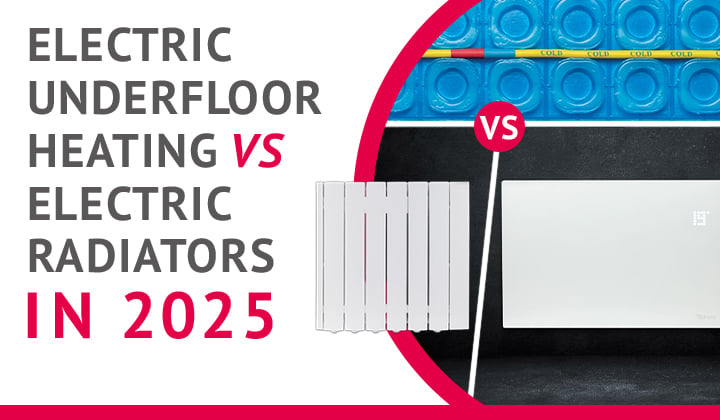
12 min read
Electric heating is having a serious glow-up in 2025. Once seen as a backup or an afterthought, it’s now leading the way in energy-efficient home...

4 min read
Launched in the latter part of 2022, the report ‘Working towards Net Zero’ sheds light on the UK construction industry’s attitudes toward direct...